
Arab states
on Thursday agreed in Jeddah to rally behind Washington in the fight against Islamic State extremists. (Photo IINA)" width="429" height="259" /> TEN Arab states on Thursday agreed in Jeddah to rally behind Washington in the fight against Islamic State extremists. (Photo IINA)Jeddah, 17 Dzulqa’dah 1435/12 September 2014 (MINA) – TEN Arab states on Thursday agreed in Jeddah to rally behind Washington in the fight against Islamic State extremists, as it seeks to build an international coalition.
“The participating states agreed to do their share in the comprehensive fight” against IS, said a statement at the conclusion of a meeting between US Secretary of State John Kerry and his Arab counterparts, International Islamic News Agency (IINA) quoted by Mi’raj Islamic News Agency (MINA) as reporting, Friday.
In addition to Saudi Arabia, the other Arab states are Bahrain, Egypt, Iraq, Jordan, Kuwait, Lebanon, Oman, Qatar and the United Arab Emirates. Although Turkey was represented in the meeting, it was not mentioned in the final communique and a Turkish government official said Ankara has refused to take part in combat against the militants.
But two other powerful regional players — Iran and Syria — were excluded, a sign of the difficulty of building a coalition across the Middle East’s sectarian battle lines.
Also Read: Tensions with Lebanon’s Hezbollah, Israel to Recruit 12,000 Additional Soldiers
Kerry is to fly on Friday to Ankara for urgent talks with officials in Washington’s key ally. He will visit Cairo Saturday to meet Arab League chief Nabil Al-Arabi “to brief the secretary general on the results of the Jeddah conference,” a senior League official said, speaking on condition of anonymity.
Egypt’s state news agency MENA confirmed the meeting would take place, and a senior Egyptian official also speaking on condition of anonymity confirmed Kerry would visit, without divulging details about his program.
The United States has pressed Arab nations to join a coalition aimed at supporting the US campaign against the extremists.
Stand united against terrorism
Also Read: Hamas: Israeli President’s Africa Visit an Attempt to Undermine Support for Palestine
In the final statement, the 10 countries and Washington declared their “shared commitment to stand united against the threat posed by all terrorism, including the so-called Islamic State in Iraq and the Levant”.
Participation in the fight will include “as appropriate, joining in the many aspects of a coordinated military campaign against IS extremists,” said the statement.
The fight will include “stopping the flow of foreign fighters through neighboring countries, countering financing of IS and other violent extremists, repudiating their hateful ideology, ending impunity and bringing perpetrators to justice”. It will also include “contributing to humanitarian relief efforts, assisting with the reconstruction and rehabilitation of communities brutalized by IS, supporting states that face the most acute IS threat”.
Earlier, after talks between Kerry and Foreign Minister Prince Saud Al- Faisal, it was announced that the Kingdom will provide bases for training of moderate Syrian rebels who are battling the extremists and President Bashar Al-Assad’s government in Damascus.
Also Read: Indonesian Language Program Officially Opened at Al-Azhar University
Kerry is following up on President Barack Obama’s call to arms against the network that has laid claim to a third of the territory of Iraq and Syria. Saudi Arabia is a linchpin of the strategy President Obama outlined in a prime-time address Wednesday, because of its influence in the region and its well-equipped military.
Broad international effort
The Obama administration is eager for the campaign against the Islamic State extremists to be perceived as a broad international effort that includes prominent Sunni states, rather than as a clash of civilizations that pits the United States against Islam.
Kerry asked the Arab states to step up their condemnation of IS and its extremist ideology. A senior State Department official said Kerry asked the Arab states to use their nationally owned media — Al Jazeera and Al Arabiya — and encourage their religious establishments to speak out against extremism.
Also Read: Indonesia to Send Language Teachers to Al-Azhar University
On the military front, the United States is pursuing discussions with regional defense ministers to discuss the expansion of bases and overflight rights so that the United States and other nations can expand the intensity and scope of airstrikes against IS in Iraq and Syria.
In agreeing to the American request to host training of the moderate Sunni opposition, the Saudis are trying to develop a force that cannot only confront IS, but can also undermine Assad’s hold on power and even maintain order if he is toppled. “It’s a quite good program, not only to support the moderate opposition, but also because it can form some basis or be integrated in a post-Assad security force,” the State Department official added.
But the Saudis have been increasingly worried about IS, which they fear presents a threat to the stability of the Kingdom.
American officials said that 1,000 Saudis had volunteered to fight with militant groups in Iraq and Syria. Saudi officials are concerned that some of those volunteers may try to carry out attacks after they return home. In recent weeks, Saudi Arabia has cracked down on a cell of more than 80 IS and Qaeda recruiters in the Kingdom.
Also Read: Türkiye Issues Arrest Warrant for Netanyahu Over Gaza ‘Genocide’
One nation the United States is not actively trying to coordinate with in fashioning a strategy to take on IS is Iran.
Iran has been backing Shiite militias in Iraq who are fighting IS, sending drones over Iraq from an airfield in Baghdad and shipping tons of military equipment to the Iraqis. “Iran is taking its own actions,” Kerry said during a visit to Baghdad on Wednesday.
“The United States does not cooperate, militarily or otherwise, nor does it have any intention in this process of doing so, with Iran.” The growing cooperation between Saudi Arabia and the United States over Syria, including plans to train anti-Assad rebels, appears to have struck a raw nerve in Tehran. (T/P3/R01)
Mi’raj Islamic News Agency (MINA)
Also Read: Kazakhstan Confirms Joining Abraham Accords





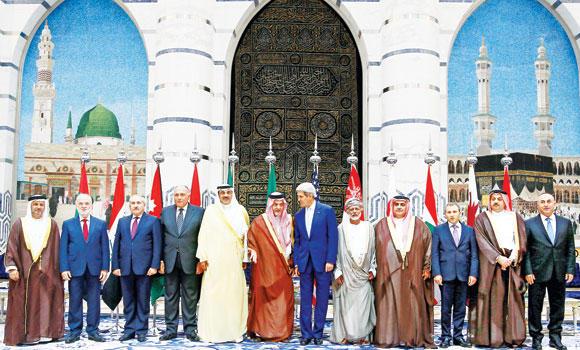



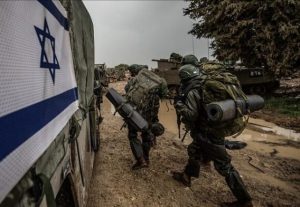





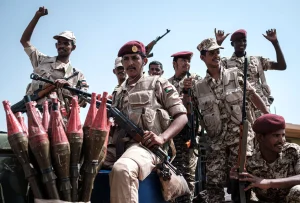


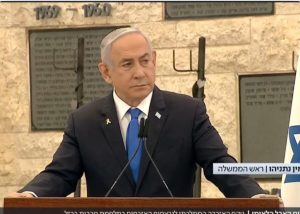









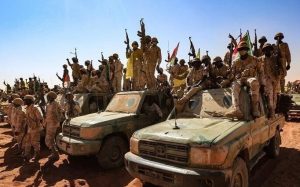
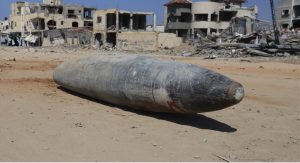


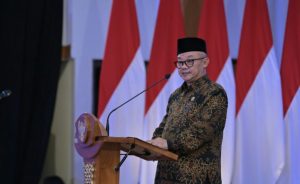



 Mina Indonesia
Mina Indonesia Mina Arabic
Mina Arabic